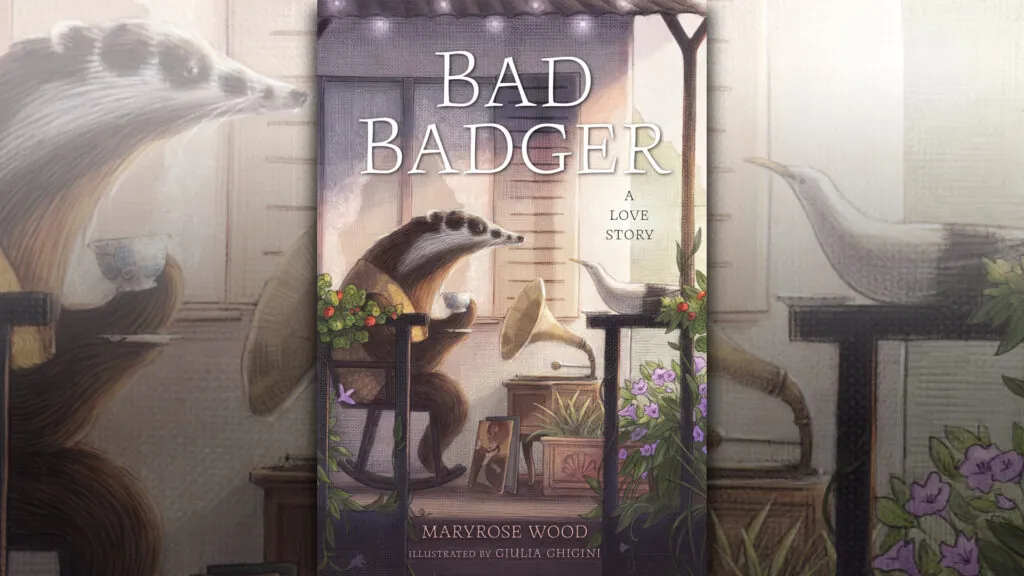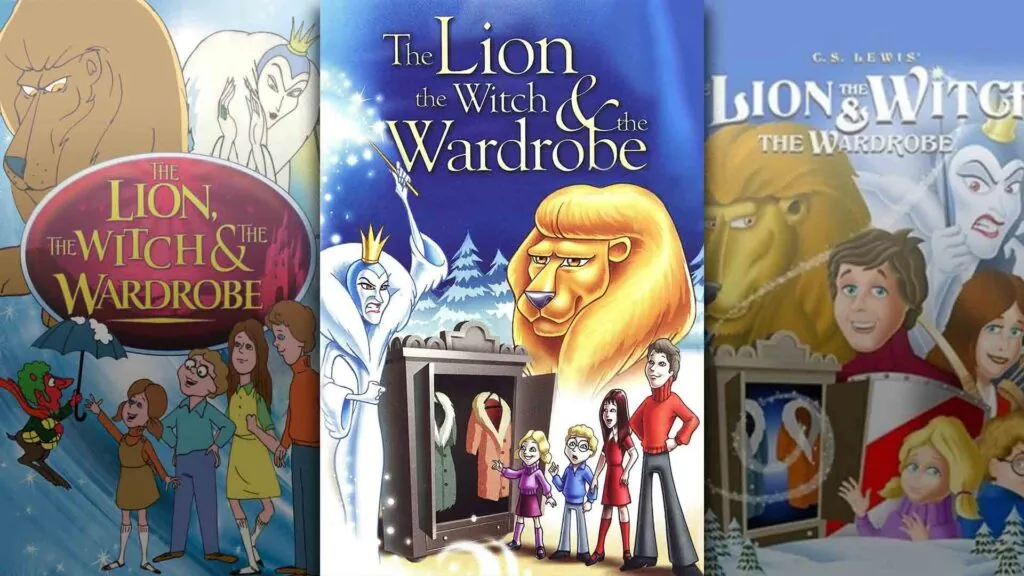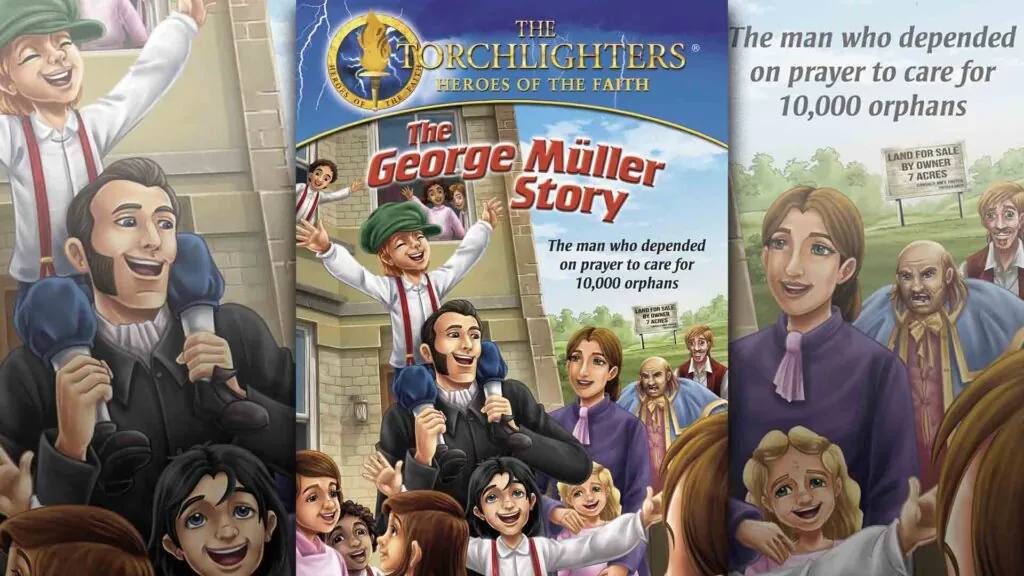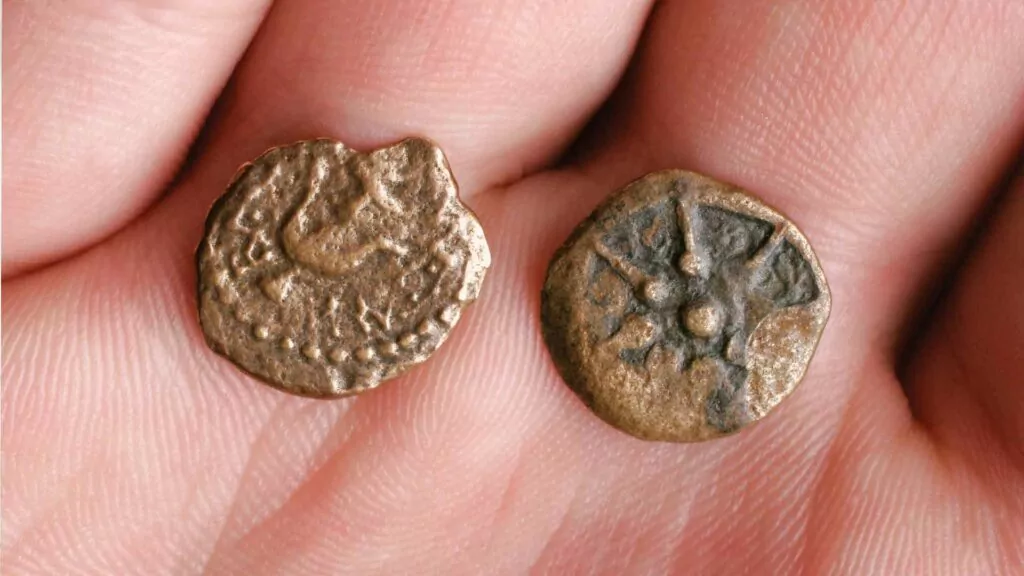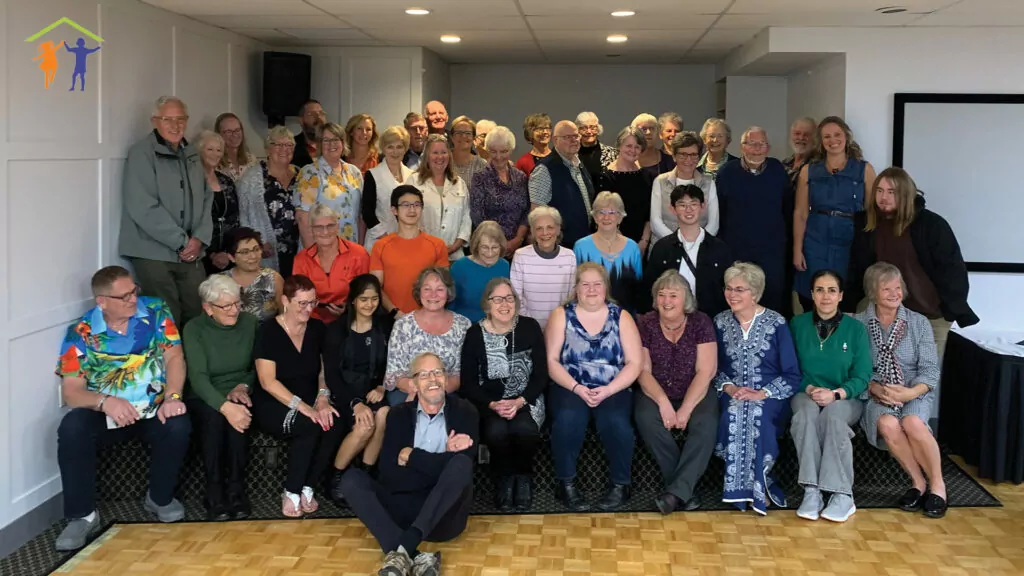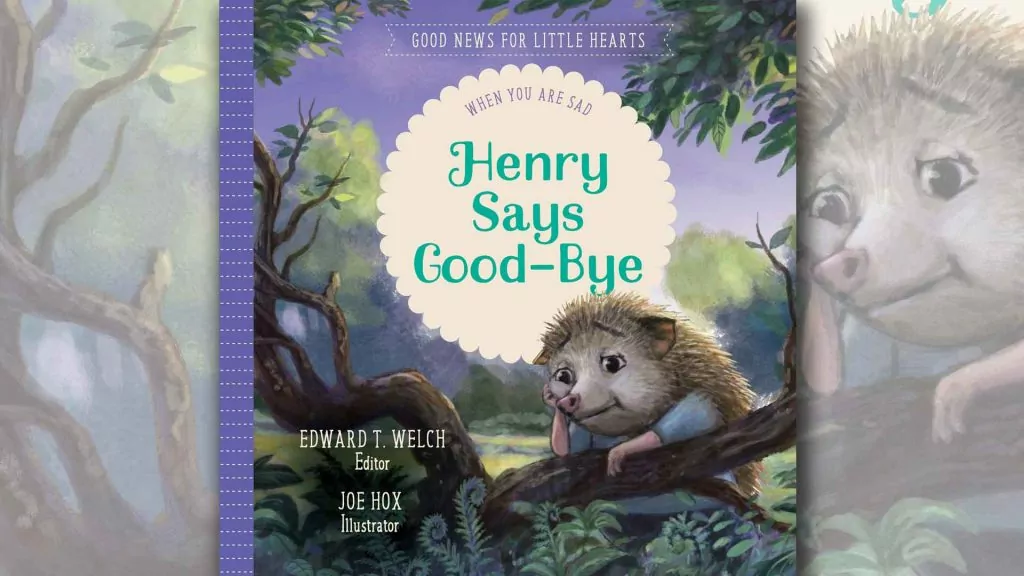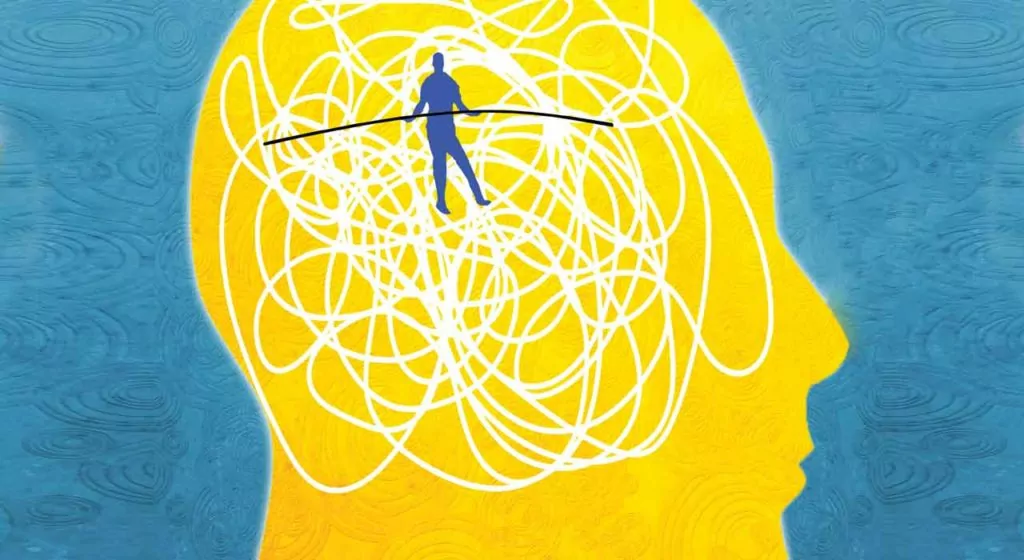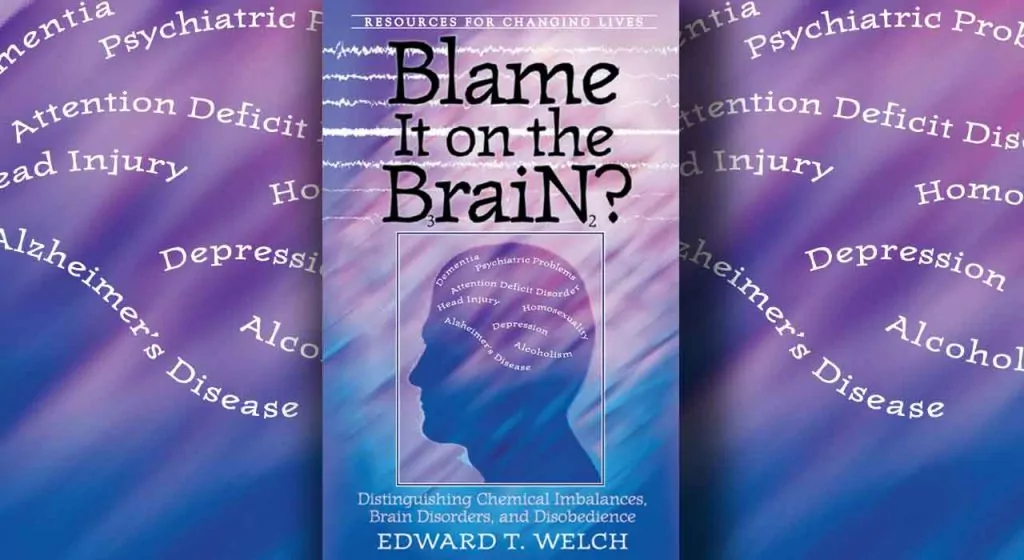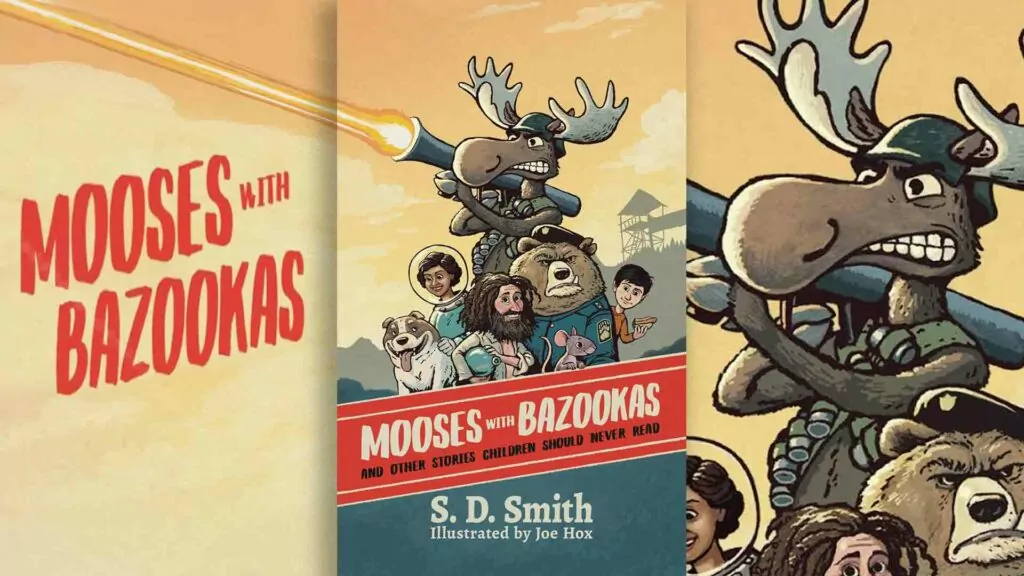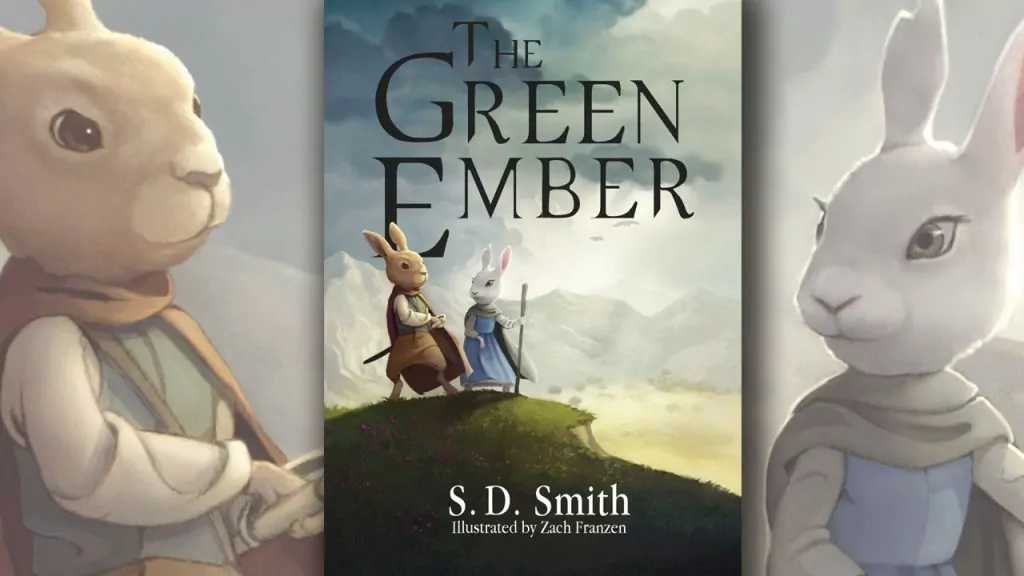Mental illness: responsibility and response
Back in Grade 6 my twin daughters came home talking about that day’s lesson in Health class. They were learning about something called “the blame game,” and why it’s not an appropriate response to the difficult situations in which we find ourselves.
THE BLAME GAME
Probably we all know how to play the blame game. We are criticized by our supervisor at work, and we’re quick to point to the circumstances that led to our poor performance. Or I’m in a tough conversation with my wife, and she’s making some accusations, but I’m throwing them back with some of my own.
Sometimes the blame game is played in the church too. A person blames his lazy attitude on the way that he was raised as a child. Someone blames his lack of church contributions on his high load of debt. I suspect that we don’t usually have patience with this kind of blame-shifting, and we want to hold people to account.
But what about some other scenarios? Can we excuse certain sinful behaviors because of the presence of a mental illness? Should we make allowances and exceptions because of how a person is afflicted in his or her mind? What is the balance of a person’s responsibility and their illness? As fellow members in Christ, how can we respond in a way that will not only help the person, but also honor the holy God?
TWO SCENARIOS
Ponder a couple of scenarios so that you can understand what I mean, and so that you can also appreciate the challenge of sorting out a fitting response.
There is a sister in your congregation who is only very rarely in church on Sundays – maybe once per month, sometimes less. It comes to light that she has an intense anxiety about coming to church. She fears almost everything about it: being surrounded by other people, having to speak with other people, being in an enclosed space for more than an hour. She agrees that God wants her to gather with his people, and that it’s important for her faith, but she can’t do it. Is she is breaking the fourth commandment, and should she be under discipline? Or does her illness – this extreme phobia – excuse her lack of attendance?
There is a brother who is struggling with addiction to pornography. He has admitted that for the last five years he has viewed pornography on an almost daily basis. Some accountability has helped, but the brother admits that he still finds ways to access sexually explicit material. As the months go by, he seems to be growing more entrenched in his sin, and he is less open to the guidance of fellow members. He recently said that the fault for his sin is in his brain, that his addiction to sex means that he is incapable of resisting. Is this a clear cut case of unrepentant sin against the seventh commandment?
Many more scenarios can be described. But the critical question is this: Are there times when, because of my brain, I am not responsible for my behavior before the Lord?
ENCOUNTERING MENTAL ILLNESS
We’re speaking about mental illness, but it’s good to back up for a moment and offer a definition and then list a few examples. First, a loose definition: A mental illness is a clinically significant health problem that affects how a person feels, thinks, behaves, and interacts with other people.
Second, in our life together as believers, what mental illnesses are we likely to encounter? There is depression, dementia, obsessive compulsive disorder, anxiety, bi-polar disorder, panic disorder, attention deficit disorder, anorexia, bulimia, post-traumatic stress disorder, and various extreme phobias. We might also encounter mental health difficulties that arise because of addictions to drugs and alcohol.
BLAME THE BRAIN?
1998 / 204 pages
So here’s the question: How much can we blame the brain?
Now, if you’re hoping for black-and-white, binary approach, you won’t read it here. If you’re looking for a formula or equation that you can use in these kinds of situations, you’ll have to look elsewhere. And there surely isn’t one!
As already noted, this is a complex area to navigate. No two situations are the same because of the individuals involved, their predispositions to developing mental illness, the particular illness, and the history and context of each situation. Still, we can take into account some important considerations. I want to acknowledge that I’m relying on many of the insights from the book called Blame it on the Brain? by Ed Welch.
Welch explains that there is a view today that almost everything begins in the brain. All our behaviors are caused by brain chemistry and physics: “My brain made me do it.” As a consequence of viewing the problem as strictly physical, the answer is often strictly physical too, as in: “I have a chemical imbalance in my brain, so how can I level that out?” Or, “My child is being hyperactive at school and disrupting the class, so what medication can he take to help him behave?”
SOLUTIONS IN SCIENCE?
Sometimes it’s very tempting to conclude that it is“all upstairs,” a matter of the brain. For example, when someone is in the darkness of depression, we can talk to them at length; we pray with them; we read Scripture to them. There are months of intensive spiritual effort, and nothing seems to work. Despite our best efforts, the person’s faith is struggling mightily. They say that they feel “dead” inside, and miles away from God.
Then they go to a psychiatrist... he prescribes some medication, and in weeks the depression starts to lift! The person begins to talk about church in a more positive way, and to read the Bible again, even enthusiastically. So was it all in the brain? Did a dose of medication really solve it? Does the brain – a biological entity – really have so much influence on our spiritual life?
The same thinking is applied to other areas of behavior. Some people argue for a biological basis of homosexuality. They also argue for a biological basis for anger, and disobedience to parents, and worry, drug abuse, and stealing. These are all brain problems, they say, not sin problems. Sometimes they can even point to evidence which suggests, for example, that the brains of pathological liars are actually physically different from the brains of “normal people,” people who are wired to (usually) tell the truth.
As Christians, we have to sort through this. We acknowledge that science can help by teaching us something about how the brain works. Yet science is not just raw data. It is data that has been interpreted by fallible humans, people who have their own worldviews and weaknesses. Science too must be made subject to the Bible.
WHO WE ARE
So to help us, we need to consider what the Bible says about who we are. The LORD created us as complex beings, as a natural organism that is at the same time being indwelled by a supernatural spirit. In 2 Corinthians 5:21, for instance, Paul describes us as spiritual beings who are clothed in an earthly tent. This two-fold composition is seen throughout the Bible, and we notice it particularly at death, when the soul or spirit goes to the Lord and the body stays behind and is buried in the ground.
Despite the separation that happens at death, when we’re living we are one person, an intimate unity of spirit and body. So how do spirit and body relate? How do these two substances function together? At a minimum, we can say that they are mutually interdependent.
We know this from experience: the way that your body feels very much affects your spirit; the activities that your spirit chooses are worked out in the body, both good and bad.
Ultimately, though, the spirit or the heart is the moral captain, the “wellspring” of our life (Prov 4:23). It’s the heart that empowers, initiates and directs. And the problem is that our heart is inclined to evil.
DIRECTED BY THE DOCTRINE OF SIN
So when it comes to questions of responsibility and response, the Bible’s teaching about sin is essential. Our position on this doctrine will affect everything that follows, and it will shape the answers that we give to these tough questions.
I understand that mentioning sin in the context of mental illness can make people uneasy. You’ve probably heard the horror stories about people telling those who are struggling with depression, “You just have to pray more. Try to read the Bible more.” That’s a response which essentially says, “You’re feeling so miserable because you haven’t done something that you need to – it’s because you’ve sinned.” I certainly don’t advise that approach, in general.
Yet it’s true that sin is a reality, and it’s our deepest problem, one that affects absolutely every aspect of our life. The Scriptures teach that all human beings are born as sons and daughters of Adam. Without the Holy Spirit’s intervention, we are dead in trespasses and sins, without any inclination to seek God or do what is good. It’s not that we don’t understand right and wrong, it’s that we choose not to live according to God’s truth.
So if sin is a deeply rooted problem, if it’s as deep as our very nature as human beings, we need to conclude that the brain itself is unable to make a person sin or to prevent a person from following Christ. The Scriptures teach us to say that any behavior which does not conform to God’s commands or any thought which transgresses his prohibitions, is something that proceeds from the sinful heart. And it is sin.
CREATED AS RESPONSIBLE
That’s not how God made us, of course. When God created us in the beginning, He made us in his image. Part of that means that we were created with the ability to make moral decisions. Consequently, as God’s creatures we are responsible for our behavior – whatever that behavior is, and whatever the circumstances.
This idea of our responsibility before the LORD is seen, for example, in the laws of Leviticus. There it says that even if a person sinned unintentionally, without meaning to, they needed to present a sacrifice of atonement (Lev 5:17). They weren’t excused because of a lack of intent, but they were held to account.
Upholding this sense of responsibility actually shows respect for a person. Holding them to account is something that recognizes their dignity as human beings, made in the image of God.
As an example, say you have a son who continually breaks your household rules. Because you’re a nice person, you always excuse him, and you find reasons not to punish him: he’s young, he’s immature, he has a lot of pressures at school. It feels like you’re being merciful. But ultimately, you’re not treating your son with respect for his dignity as one created in God’s image. You’re implying that he’s too weak to handle the consequences, or too dumb to figure out a better alternative. You’re not helping him to grow in his sense of responsibility, while the loving thing would be to let him experience consequences.
In the same way, we are responsible before God our Father. He doesn’t give us a free pass for any sin, because He made us to serve and obey him in all things.
Next we’ll see how this truth relates to the way that we try to help our brothers and sisters who are struggling with mental illness.
THE LIMITS OF THE BRAIN
To this point, we’ve said that the brain itself is unable to prevent a person from following Christ. The Scriptures teach that any behavior that does not conform to God’s commands, any thought that transgresses his prohibitions, is something that proceeds from the sinful heart. God created us as responsible beings but through our own fault we have been deeply affected by sin.
Yet there is more that must be said. An over-simplified answer doesn’t help us. In his book Blame it on the Brain? Ed Welch speaks about three categories:
When the brain can be blamed: There can be mental illness that affects brain functioning in a way that leads to sin. For example, people who are suffering from dementia might say and do very hurtful things. A person with dementia might make sexually suggestive comments to women, or she might be sinfully demanding toward family members. We are right to be immensely patient in these cases because of the obvious illness and impairment of the brain.Having said that, we know that brain problems can expose heart problems. The damaged brain is not generating sin. It’s simply taking the cover off things that were previously hidden in the heart, like a poor attitude toward women, or a demanding spirit.
When the brain might be blamed: A physical change in the chemical levels of our brain can lead to certain conditions, such as depression or ADD. This is why medications that address the imbalance can have such an effect on behavior.Even so, while psychiatric problems can have this physical cause, there can be a spiritual element too. Most mental illnesses are hybrids, a combination of physical and spiritual problems. For instance, an anxiety disorder can arise from factors that are outside a person, such as living in a world that is fallen and under the curse, or dealing with a very difficult work situation and many demands at home. Combine that with a biological predisposition to anxiety, and you’d say a person is almost destined to suffer with it.Conversely, a depressive disorder can also be a consequence of sinful choices that the person has made. A person might be living in the misery of unconfessed sin, living far from God. In a sense, we shouldn’t be surprised that they have no rest (see Psalm 32 or 38). This is a heart problem that is manifesting itself in the brain.
When the brain cannot be blamed: There are behaviors that are physical, and they definitely have a mental component, but they cannot be blamed on the brain. Take homosexuality as an example, which some will say is biologically determined. This is unclear, but even if there was evidence for the gay gene, we must respond in a biblical way. And that is to say that homosexual activity is forbidden by the Lord. We can be influenced by our genes, but that’s much different than being determined by them. At most, our biology is like a friend who tempts us into sin. Such a friend might be bothersome, but he can be resisted. We don’t have to go along with him.Alcoholism is another example. It’s called a disease, and in the secular setting it’s often spoken of in those terms. Sometimes an alcoholic will say, “That’s the disease talking.” There could even be a genetic predisposition towards alcoholism, yet the Bible states that drunkenness is a sin, and in the end we also have to treat it as such.
WHAT ABOUT ADDICTIONS?
“Addictions” is a much-used term today. The difficulty is that it is a very elastic and ambiguous category, and it covers everything from frivolous activities (being addicted to certain shows on Netflix) to far more serious (being addicted to drugs). While the term is misused, it is true that an addict can feel that he is trapped and out of control.
While the Bible doesn’t directly mention addictions, it does talk about our motivations and desires. It recognizes that there are forces so powerful they can overtake our lives.
Yet our addictions are more than self-destructive behaviors; they are violations of God’s law. An addiction is about our relationship with God much more than about our biology. When we see the spiritual realities that are behind our addictive behaviors, we find that all people serve what they love: either our idols, or God.
As for the question of responsibility, we must be clear that an addiction begins with a choice. Idols exist in our lives because we invite them in and love them. Once they find a home in us, they resist leaving. They change from being servants of our desires, to being masters. Like James writes in his first chapter, “Each one is tempted when he is drawn away by his own desires and enticed. Then, when desire has conceived, it gives birth to sin; and sin, when it is full-grown, brings forth death” (1:14-15).
When we repeatedly choose to do evil, these decisions can also be accompanied by changes in brain activity. It doesn’t mean that the brain has caused the decision, but the brain renders the desires of the heart in a physical medium. Welch says that “it’s as if the heart leaves its footprints on the brain.”
That helps us to understand the research which suggests that the brain of an addict is different from the brain of a “normal” person. What has been going on in the heart, month after month, year after year, is being represented physically, with changes in the way the brain operates. This doesn’t prove that the brain caused the thoughts and actions; rather, brain changes can be caused by these behaviors. Once again, it started with sin.
AN APPROACH FOR HELPING
It’s time to draw some of this together in an approach to the question of responsibility and response. Bear in mind that every situation is different, and there is not a one-size-fits-all approach. But I hope that some of these guides can be helpful.
Distinguish between symptoms: When there is mental illness, there can be a host of symptoms. And it’s important to distinguish between spiritual and physical symptoms and to consider whether the Bible commands or prohibits this behavior.For example, with depression, the spiritual symptoms are feelings of worthlessness, guilt, anger, unbelief, and thanklessness. These are heart issues which need to be addressed with Scripture and prayer. But depression also has physical symptoms, such as feelings of pain, sleep problems, weight changes, fatigue, problems with concentration. This set of difficulties requires a different response, but they do need a response.
We are not our genes: There are genetic problems, and even genetic predispositions toward things that are sinful. But we are not our genes. The Scriptures teach that we are born as sinners, and that sin arises naturally in our heart. We enter the world as slaves of sin, but we are still blameworthy for surrendering to sin. So even if it were discovered that we are predisposed to certain sinful behaviors like alcoholism or homosexuality, this would not eliminate our responsibility for such sinful actions. Our individual makeup and background provide context for sin, and may fuel the craving for sin, but these things don’t take away the accountability for our sin.
Don’t rush to medicate: We mentioned earlier that psychiatric disorders sometimes respond to medication. There can be a real benefit, so this becomes our reflex response: we assume a prescription will fix the situation, and we advise a visit to the local psychiatrist. Yet we shouldn’t rush to medicate. It can be effective with some people, not all. There can be adverse effects to almost every tablet, and there can be a danger of over-medication. More to the point, we have to remember that medication cannot change the heart; it cannot remove our tendency toward sin, revive our faith, or make us more obedient.
Maintain a sense of responsibility: God created us as responsible beings, for we were made in his image. This means that He holds us to account for what we do. We diminish a person’s God-given dignity by looking at them and seeing only their infirmity, and not their responsibility. If we write people off because they have depression, it doesn’t help. The person concludes, “This is what the church thinks of me – I’m a screw-up, I’m damaged goods, and I’m not going to get better.”Scripture directs us to this principle of responsibility too. Think of Jesus’ words in Luke 12:48, “For everyone to whom much is given, from him much will be required; and to whom much has been committed, of him they will ask the more.” We can almost always require of people that they give an account of their conduct. The same text teaches us that not everyone is the same. Some have received more blessing, others less. One person’s situation in life is far more difficult than another’s. It doesn’t mean they aren’t responsible, but it means we have to weigh their responsibility in the light of everything else we know about them.
Be patient: Trying to help people with mental illness can be frustrating. If we haven’t experienced anything like it ourselves or among those who are close to us, it is hard to relate. We might get exasperated with their constant struggles, their ups and downs, and behaviors that seem inexplicable. Sometimes we want to give up, but we need to be patient.Think of what David says in Psalm 103:14. He says, “The LORD knows our frame; He remembers that we are dust.” That’s a mark of loving and attentive parents: they know their kids, “they will know their frame” – what they’re made of. Parents can see pretty quickly when their kids are tired, or when they’ve had a rough day at school. And so parents will try hard to fight against their own impatience, and try to cut the kids a little slack. God is a Father who sees the weaknesses of his children from a mile away. He knows our frame: the Father knows exactly where we’re come from in life, and He knows the good and the bad that we’ve gone through. The LORD also understands what we’re made of, and that no matter how we seem on the outside, we’re weak: physically, emotionally, spiritually weak. We don’t have it together, so He is patient with us.
CONCLUSION
In conclusion, let’s be reminded of our goal as fellow members of the church: we want to care for each other in a Christ-like way (Phil 2:1-4). Our desire is to see our fellow members enjoy life in God’s grace and service. Helping them effectively requires us to take into account the full picture of who they are, including when there is the presence of mental illness. We don’t let them blame it, and we don’t ignore it, but we try to help them be faithful to the Lord even in the midst of their struggles of spirit and body.
Dr. Reuben Bredenhof is pastor of the Free Reformed Church of Mount Nasura, Western Australia. This article first appeared in two parts in Una Sancta the denominational magazine of the Free Reformed Churches of Australia...



























